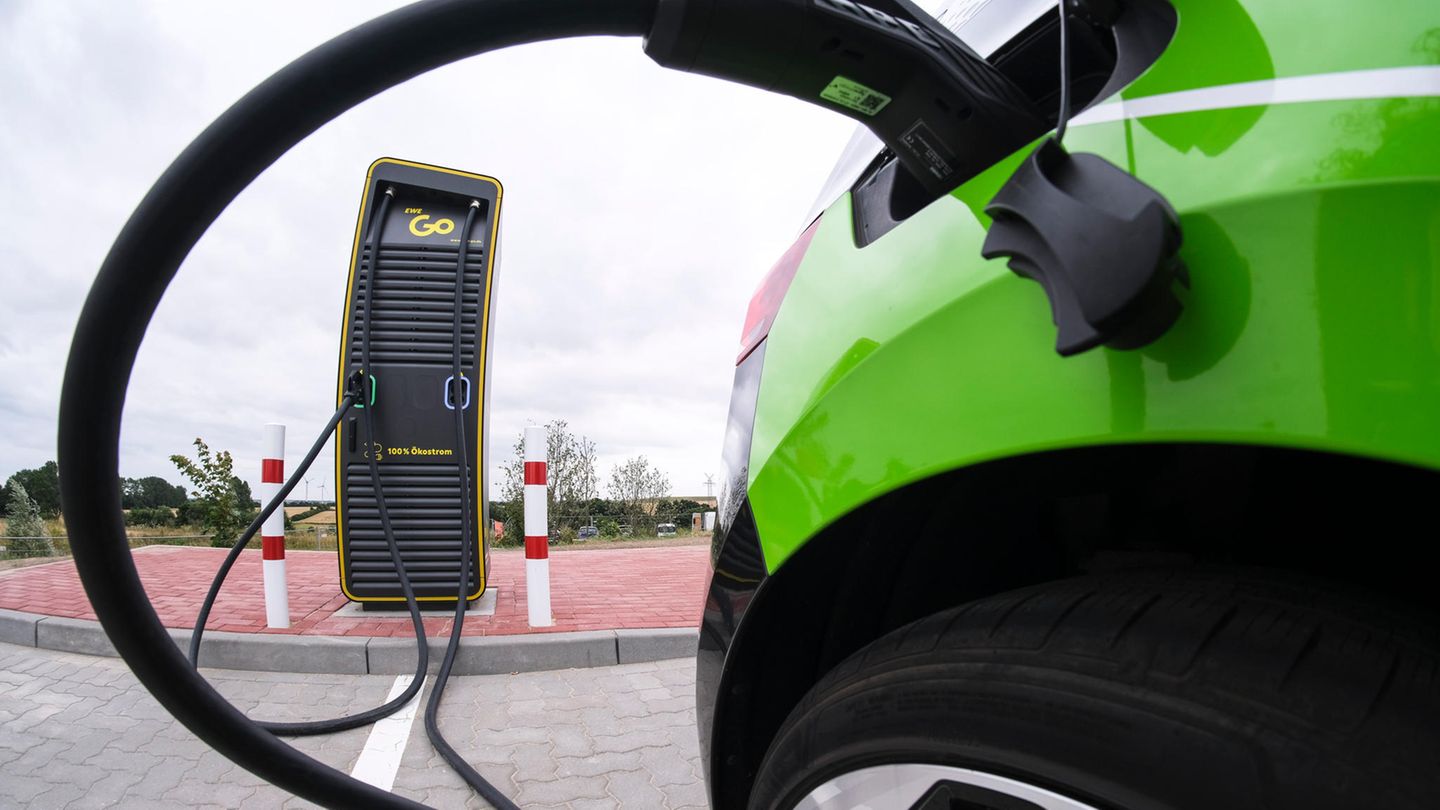Building climate-friendly cars while preserving jobs – that is the goal of the “Future Fund” for the German auto industry. During the federal government’s auto summit, the billions in aid were launched.
The automotive industry is in the middle of a profound upheaval – the industry is supposed to be helped by a multi-billion “future fund”. At the car summit with Chancellor Angela Merkel (CDU) on Wednesday, the responsible committee of experts presented its recommendations for the use of the funds: The focus should be on help for the regions particularly affected by change, as well as with digitization and the switch to new drive technology. The fund comprises one billion euros for the years 2021 to 2025.
“We want the mobility of the future to continue to be mobility ‘Made in Germany'”, said Federal Minister of Economics Peter Altmaier (CDU). The future fund is an “important instrument to accompany the transformation in the automotive industry and to secure jobs”.
Climate-friendly cars “Made in Germany”
The aim is for the German automotive industry to “build the climate-friendly cars of the future, create new jobs and maintain added value,” said Federal Finance Minister and SPD candidate for Chancellor Olaf Scholz. The Automotive Industry Future Fund also serves this purpose.
According to the Ministry of Finance, the federal government agreed on the specific structure of the future fund on the basis of the report of the expert committee and has already started its implementation. Its establishment had already been decided last November. In the past few months, the Expert Council had drawn up specific recommendations.
Urgent demand for more charging stations for e-cars
These provide that on the one hand there should be regional cooperation for the development and implementation of transformation strategies on site. According to the Ministry of Economic Affairs, a total of 340 million euros has been earmarked for this. The digitization of the automotive industry is being supported with a further 340 million euros and the “mobility of the future” is to be strengthened with 320 million euros. Drives and fuel cells “.
The President of the Association of the Automotive Industry (VDA), Hildegard Müller, expressly welcomed the future fund. “Our goal is to make the transformation into a job, growth and economic engine,” she explained. As early as next spring, the German automotive industry could be the world leader in the sale of electric cars. But a well-developed charging infrastructure is important for this. “The current expansion plans in Germany and Europe are insufficient,” criticized Müller.
BUND: “No more time for half measures”
The Federal Association of Energy and Water Management (BDEW) also called for a faster expansion of the charging infrastructure and planning security for companies. “Constant new specifications for technical, but not necessary retrofits delay the expansion and make it unnecessarily expensive”, explained the BDEW chairman Kerstin Andreae. What is particularly necessary is the quick and unbureaucratic provision of space and an acceleration of the approval process.
The environmental organization BUND criticized the fact that the car summit took place without representatives of environmental and climate protection movements. “A de facto halving of greenhouse gases in traffic within the next nine years is necessary,” said BUND managing director Antje von Broock. She called for concrete resolutions to exit the combustion engine and the speed limit. “We don’t have time to do things by halves,” she explained.
On Wednesday, Chancellor Merkel invited the members of the Concerted Action Mobility to what is now the sixth top-level discussion on the future of Germany as an automotive location. The members of the format include representatives of the coalition and prime ministers from federal states with major manufacturers in the industry, as well as representatives from the automotive industry, employees, the National Platform for the Future of Mobility (NPM) and the German Academy of Science and Engineering. The proposals of the “Fit for 55” package of the EU Commission to achieve the climate targets were also discussed.
Jane Stock is a technology author, who has written for 24 Hours World. She writes about the latest in technology news and trends, and is always on the lookout for new and innovative ways to improve his audience’s experience.




